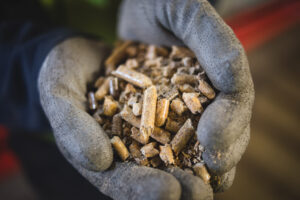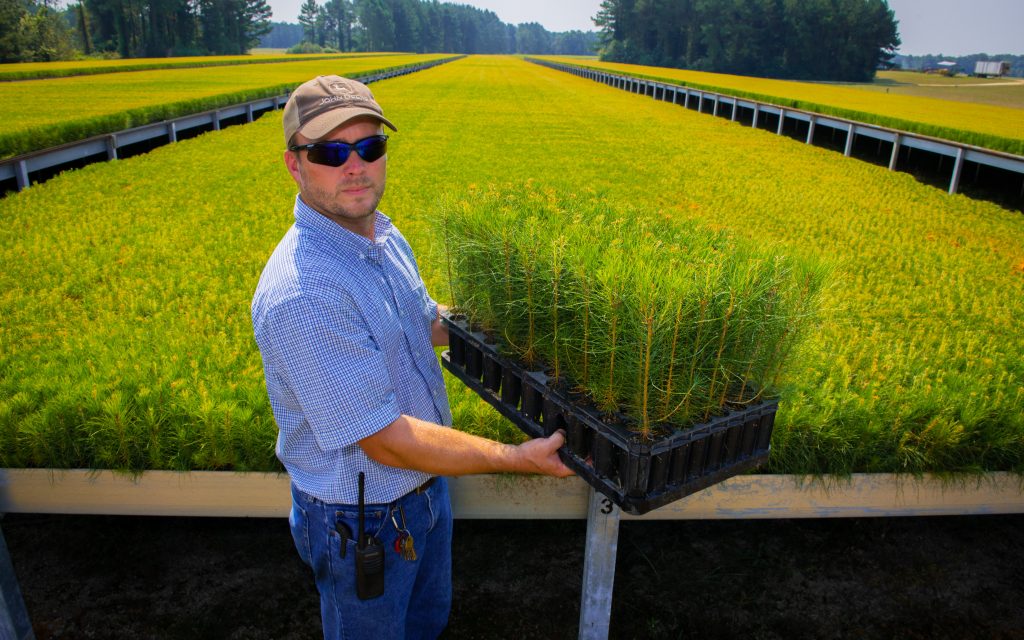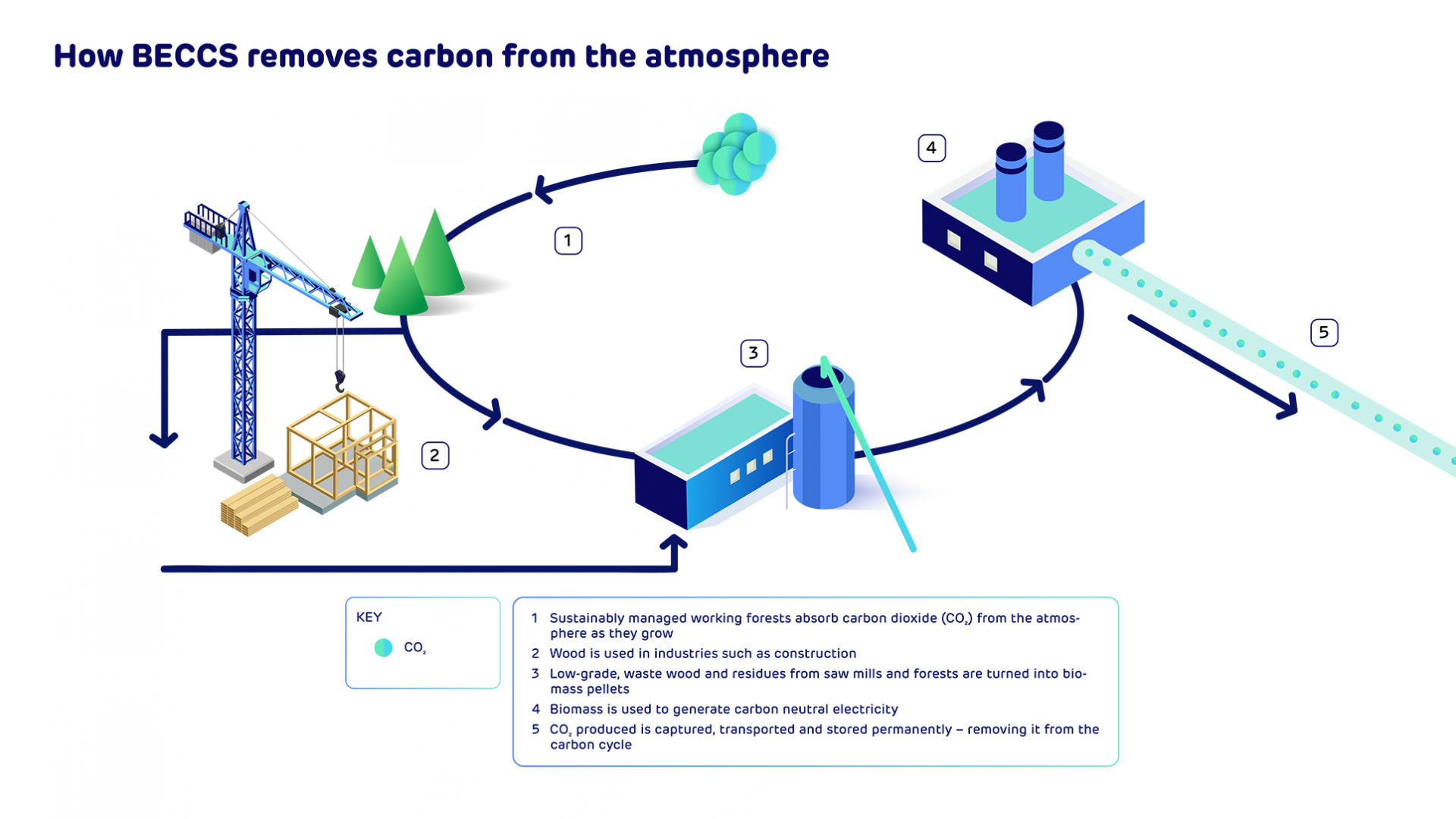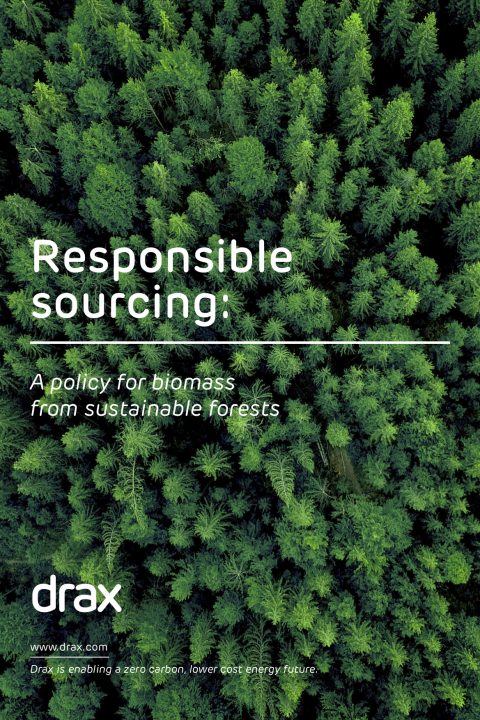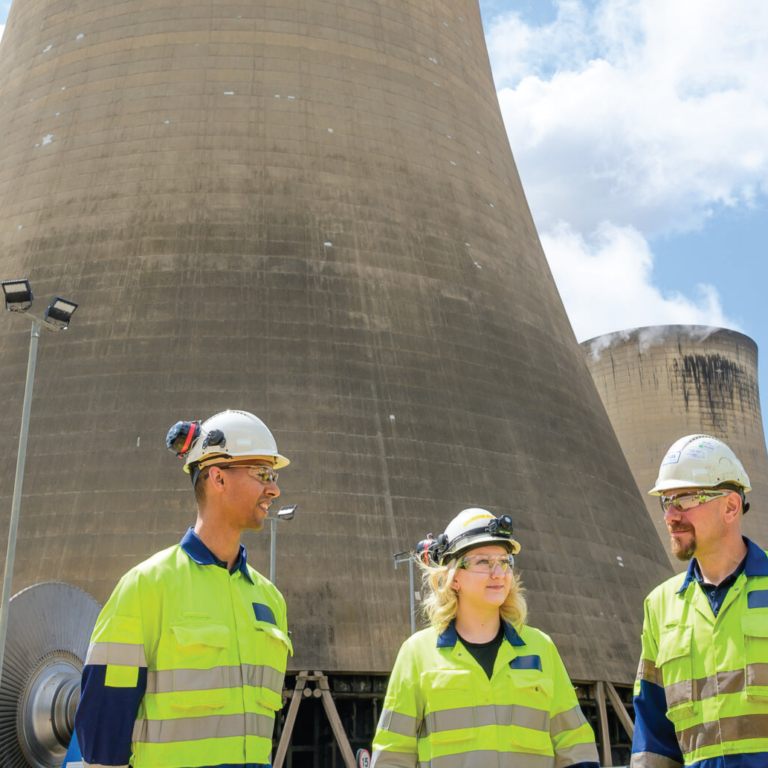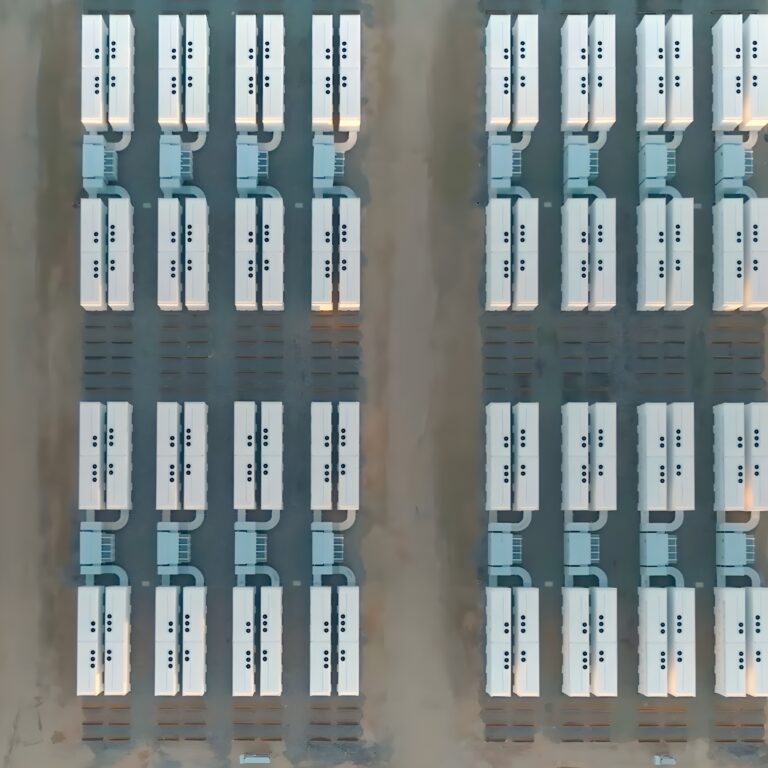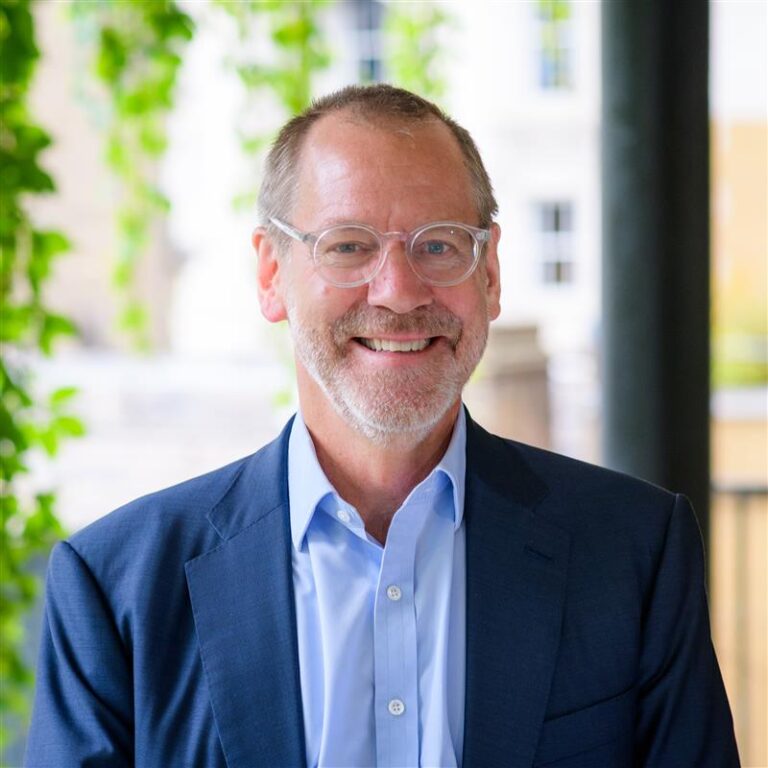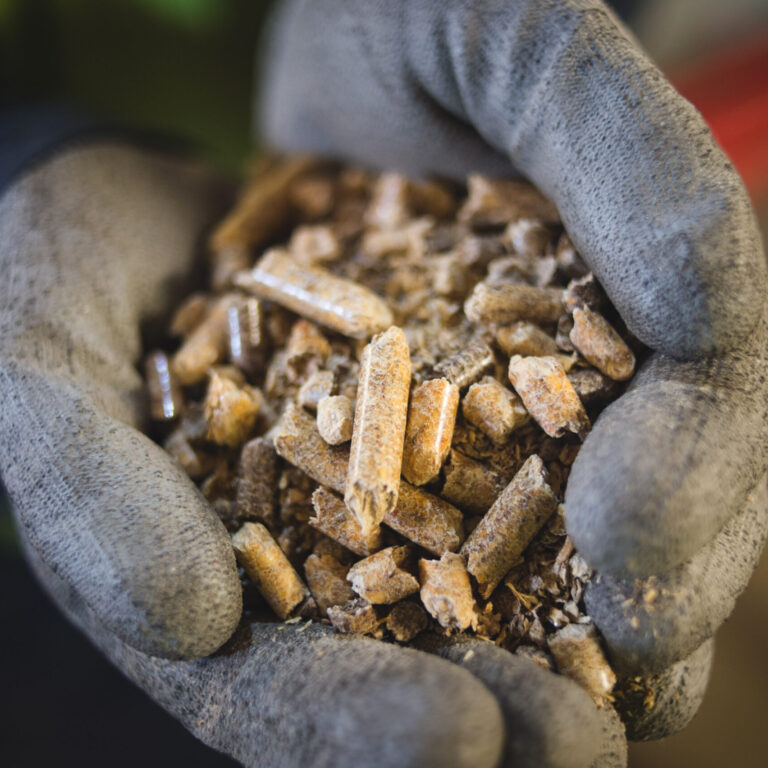Will Gardiner opened the second day of the Chatham House Energy Transitions conference. Watch his keynote address below or scroll down the page to read his speech in full.
The energy transition is central to our purpose of enabling a zero carbon, lower cost energy future.
Drax has been at the heart of Britain’s energy system for decades. And we have played a key role in the decarbonisation of the power sector: Drax Power Station in Selby, North Yorkshire, is the UK’s largest power station and Europe’s largest decarbonisation project. Cruachan, our Scottish Pumped Storage facility is a key complement to Britain’s ever increasing supply of offshore wind.
Our transition from coal to biomass has allowed us to reduce our greenhouse gas emissions by over 80% while providing clean and flexible energy to millions of homes and businesses across the UK. This month saw the end of commercial coal generation at Drax power station – a milestone in the history of our company and of the UK economy, too.
But the scale of the climate crisis means that we cannot stop here.
Which is why we have committed to a world-leading ambition to be carbon negative by 2030.
We will achieve this by making a transformational investment in bioenergy with CCS, or BECCS, which will enable us to permanently remove carbon emissions from the atmosphere while continuing to supply the renewable electricity that millions of British homes and businesses depend upon.
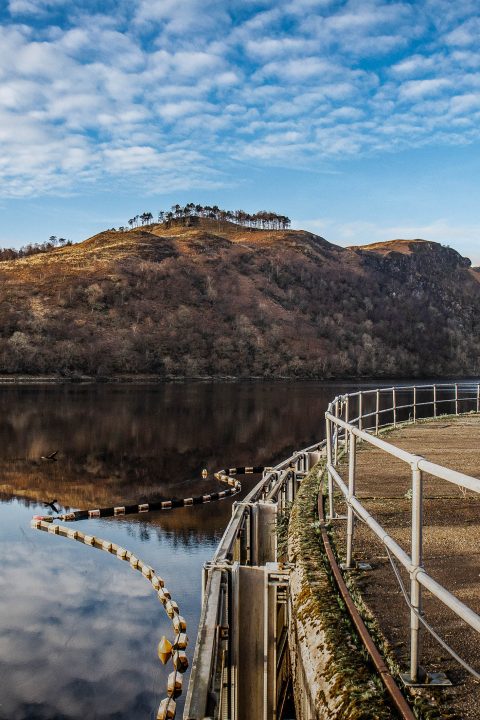
Water outlet into Loch Awe from Cruachan Power Station
Today, we are pioneering BECCS at Drax Power Station as part of the Zero Carbon Humber Cluster, a coalition of diverse businesses with one ambition: to create the world’s first net zero emissions industrial cluster.
The benefits are enormous
BECCS is a vital technology in the fight against climate change. Expert bodies such as the Climate Change Committee here in the UK and the IPCC at a global level are clear that we need negative emissions technologies including BECCS to reach net zero, and BECCS is central to the UK and Europe’s decarbonisation plans.
As the world’s largest, and most experienced, generator and supplier of sustainable bioenergy there is no better place to pioneer BECCS than at Drax. The economic, social and environmental benefits are enormous.
BECCS at Drax will permanently remove millions of tonnes of carbon from the atmosphere and help heavy industry in the UK’s largest emitting area decarbonise quickly and cost effectively;
It will enable the creation of tens of thousands of green jobs in the North of England, levelling up the economy and delivering a green recovery from the Covid crisis;
And it will put the UK at the forefront of global efforts to develop carbon removal technology in this, the year that we host COP26 in Glasgow.
The scale of the climate crisis means that we cannot stop here.
A proven technology
We know that BECCS works and that the technology is available now. Looking at cost projections from the CCC, we also know that it is the best value negative emissions technology.
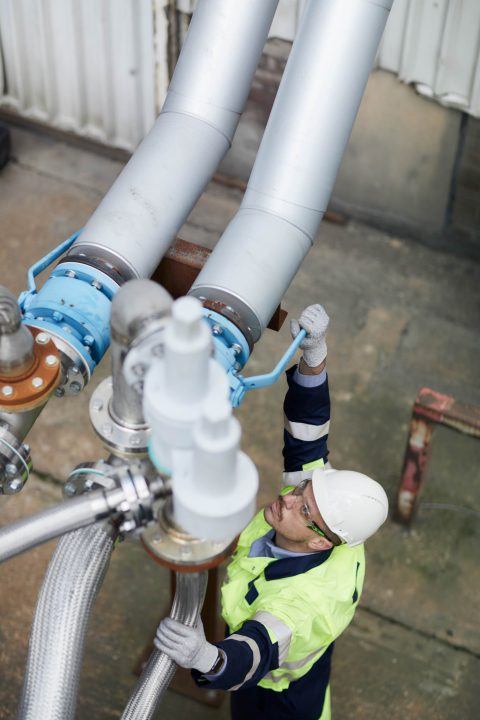
Engineer at BECCS pilot project within Drax Power Station
We have already successfully run two BECCS pilots at the power station. In 2019 we demonstrated that we can capture CO2 from a 100% biomass feedstock. And in 2020, we began a second pilot working with Mitsubishi Heavy Industries to further enhance the potential for delivering negative emissions.
We aim to deploy BECCS at scale by 2027. To that end, earlier this month, we kickstarted the planning process for our proposals to build our first BECCS units, marking a major milestone in the project and putting us in a position to commence building BECCS as soon as 2024.
The support we need
Drax Power Station has a proud history of transformation. And today we are making rapid progress in further decarbonising our operations and making bold commitments about our future.
The core of our successful decarbonisation has been a close partnership with government. And it is this partnership that will make BECCS a reality and enable the multiple benefits that come with it. An effective negative emissions policy and regulatory framework from government will enable further investments from companies such as Drax.
We believe it is possible for such a policy framework to emerge in the coming months.
With COP26 later this year, making that policy commitment will allow us to accelerate our own decarbonisation journey and support the industries of the future here in the UK.
BECCS in context
But we know that there is no silver bullet solution to tackling climate change.
Negative emissions technologies such as BECCS will be needed alongside others, for example more renewables, electric vehicles, energy storage, energy efficiency and hydrogen.
BECCS will enable us to permanently remove carbon emissions from the atmosphere while continuing to supply the renewable electricity that millions of British homes and businesses depend upon.
BECCS complements – and does not – and should not – substitute for ambitious decarbonisation plans. Technologies such as BECCS have a clear and unique role to play by helping harder to abate sectors such as heavy industry, aviation and agriculture – decarbonise.
This is critically important if we are to meet our legally binding 2050 net zero target. The CCC estimates that 51m tonnes of CO2 will need to be captured via BECCS to meet net zero.
Sustainability at our core
We know that BECCS can only make a meaningful contribution to tackling climate change if the bioenergy is sustainably sourced. This has been fundamental to Drax’s transition from coal to biomass, and it remains fundamental as we progress our plans for BECCS.
Biomass, as the UK Government has stated, is one of our most valuable tools for reaching net zero emissions. So we need the right framework to ensure it is sourced sustainably.
As the world’s largest bioenergy producer and generator, we recognise our responsibility to be the world leaders in sustainability, too.
At Drax, we have invested in world leading policies, tools and expertise to ensure that our biomass is sustainably sourced. We go beyond regulatory compliance and have set up an Independent Advisory Board, Chaired by the UK Government’s former Chief Scientific Advisor, to help us and challenge us on sustainable biomass and its role in Drax’s transition to net zero.
Thanks to our independent catchment area analyses, we know more about the forests we source from than ever before. We know and can demonstrate how demand for biomass can support healthy forests. For example, in the South East US where Drax sources most of its biomass, there is more than double the carbon stored in forests than there was 50 years ago.A partnership with our stakeholders
The purpose of today’s session is to discuss all these issues and more. Our aim is clear: to enable a successful energy transition.
At Drax we stand ready to invest hundreds of millions of pounds to scale up BECCS technology;
To put the UK at the forefront of global efforts to reach net zero emissions;
And to help create tens of thousands of green jobs in the North of England.
But I want your help in making BECCS as sustainable and successful as it can be.
We know and can demonstrate how demand for biomass can support healthy forests.
Thank you very much for listening and I wish you a good and constructive session tackling this critical global challenge.


